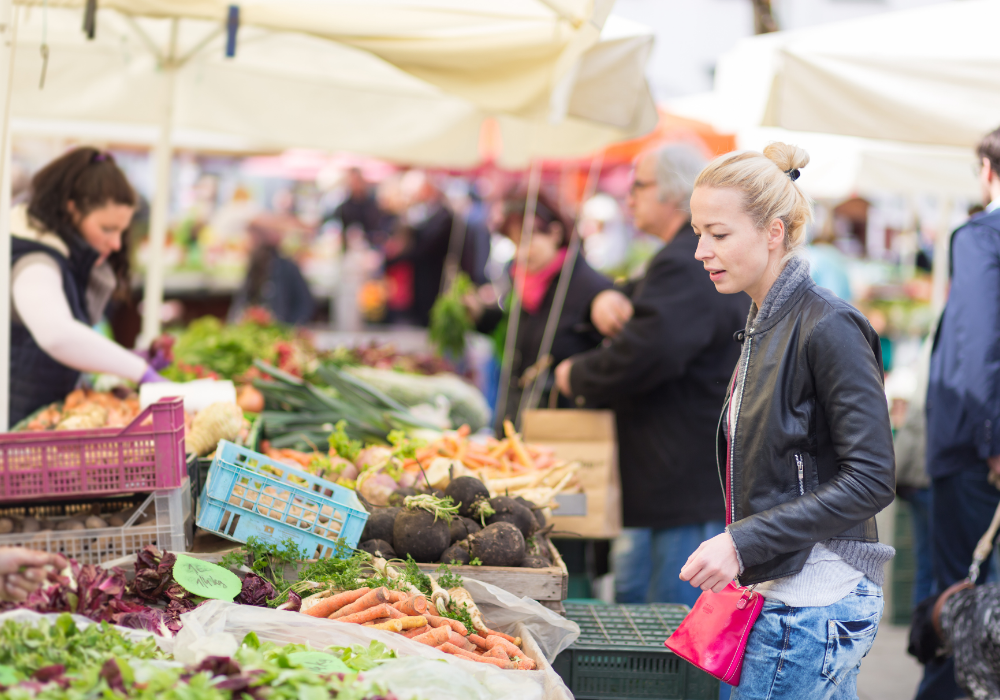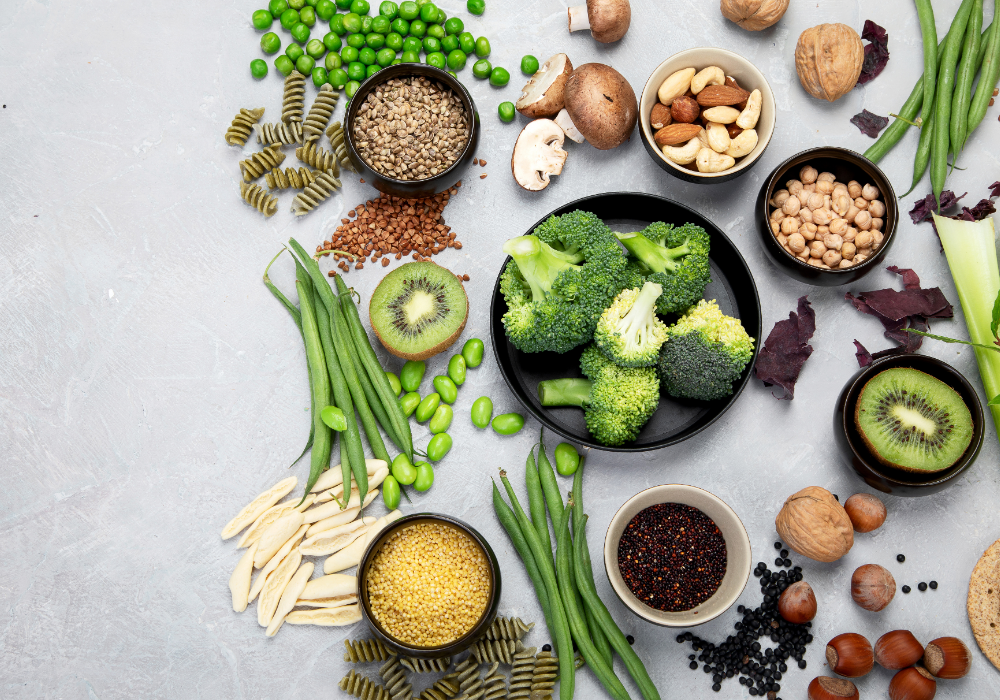Forget the fad labels; plant-based eating just makes practical sense.

Plant-based eating has been painted as a trendy, Instagram-fueled movement, but the truth? It’s way more practical than flashy. Whether you’re cutting meat to save cash, simplify your meals, or reduce your environmental footprint, focusing on plants just makes sense. It’s not about buying overpriced vegan cheese or joining the latest cleanse—it’s about making choices that actually work for your body, your wallet, and the planet.
You don’t need to label yourself a “vegan” or overhaul your entire pantry overnight. Small shifts—like adding more beans or swapping a few meals a week—already make a big difference. The beauty of plant-based eating is how flexible and forgiving it can be. Once you see how practical (and tasty) it really is, you’ll wonder why it ever felt intimidating in the first place. Less stress, more veggies, and way more flavor.
1. Saving money on groceries is easier when you center your meals around plants.

Meat, cheese, and specialty seafood add up fast on any shopping list. Beans, lentils, whole grains, and seasonal vegetables, on the other hand, are some of the most budget-friendly staples around. When you plan meals around these affordable basics, your weekly total at the checkout line can drop dramatically. According to writers for the Physicians Committee for Responsible Medicine, switching to a low-fat vegan diet—focused on produce, grains, and legumes—reduced grocery bills by 16%, saving about $500 per year compared to a standard omnivorous diet.
Plus, plant-based meals often stretch further, letting you repurpose leftovers into wraps, soups, or grain bowls without feeling repetitive. You’ll find yourself buying fewer pricey sauces or marinades to make meat taste interesting, too. Instead of dreading the grocery bill, you’ll start getting creative and excited to see just how many meals you can build from a single bag of produce. Eating more plants isn’t just good for your health—it’s a quiet little hack for keeping your bank account happier, too.
2. Cooking at home becomes simpler and way less stressful with plant-forward meals.

Ever spent an evening wrestling with a raw chicken or worrying about undercooked steak? Plant-based meals skip all that. Chopping veggies, simmering beans, or tossing tofu in a pan feels more like a fun experiment than a high-stakes performance.
You don’t have to obsess over exact internal temperatures or stress about cross-contamination on your cutting board. Per Jessica Ball for EatingWell, plant-based meat alternatives require the same safe handling and cooking temperatures as animal meat—suggesting that they’re generally easier and lower-risk to prepare compared to raw chicken or beef.
Most plant-based recipes come together quickly and don’t demand expensive kitchen gadgets. They’re also super forgiving—if your sweet potatoes are a little soft or your beans cook a bit longer, no big deal. You’ll feel more confident in the kitchen and actually enjoy the process, rather than seeing dinner as a chore.
3. Plant-based meals help you naturally cut back on sneaky additives and preservatives.

So many packaged meats, cheeses, and pre-made sauces are loaded with hidden sodium, artificial flavors, and preservatives. When you lean into plant-based meals, you automatically cut back on these sneaky extras. Fresh veggies, beans, whole grains, and nuts don’t need a paragraph-long ingredient list to taste good. As highlighted by James Myhre for Verywell Health, processed foods—including deli meats and packaged cheese—are the primary source of dietary sodium in the U.S., contributing significantly to hypertension and cardiovascular risk.
As you eat more plants, your taste buds start to appreciate natural flavors again—like the sweetness of roasted carrots or the richness of a ripe avocado. You’ll find yourself craving simpler, fresher meals and feeling more energized as a result. Instead of scanning labels for hidden ingredients, you’ll feel confident knowing what’s on your plate.
4. Supporting local farmers becomes easier and more impactful when you eat plants.

When you choose plant-based meals, your shopping list naturally shifts toward more fresh produce, legumes, and grains. This opens up more opportunities to buy from local farmers’ markets or community-supported agriculture (CSA) programs. Supporting these growers keeps money in your community and encourages more sustainable farming practices.
Besides boosting your local economy, you also get to enjoy fresher, often more nutrient-dense food that hasn’t spent days or weeks in transit. Those juicy tomatoes or crisp greens taste wildly different from the shipped, shelf-weary versions at big box stores. You’ll feel more connected to your food and the people who grow it, making meals feel special and rooted in real relationships. Next time you whip up a salad or veggie stir-fry, you’ll know exactly where those ingredients came from—and that feels pretty powerful.
5. Reducing your environmental footprint is an effortless bonus of plant-based choices.

We all know climate change is a big, looming issue—but shifting your meals is one of the most tangible ways to help. Plant-based diets generally require far fewer resources than meat-heavy ones. Growing plants takes less water, uses less land, and emits fewer greenhouse gases compared to raising livestock.
By choosing plants more often, you’re making a direct, meaningful impact without needing to protest or overhaul your entire lifestyle. Even just cutting back on meat a few times a week adds up over time and makes a genuine difference. You don’t have to be perfect to be effective—small, consistent changes are what count. Next time you enjoy a veggie-packed bowl, you can feel good knowing you’re doing something practical and kind for the planet, one delicious bite at a time.
6. Improving digestion naturally happens when you focus on plants.

Many plant-based foods are rich in fiber, which helps keep things moving smoothly in your digestive system. Instead of relying on pricey probiotics or chalky fiber supplements, you’ll get natural support just by eating more fruits, vegetables, legumes, and whole grains.
Better digestion doesn’t just mean fewer uncomfortable bloating episodes—it also supports your immune system and helps you absorb nutrients more effectively. You might even find your energy levels are more stable throughout the day.
Over time, you’ll notice you’re less reliant on quick fixes and “gut health” gimmicks. Your meals become your medicine, in the most delicious and satisfying way. Once you see how much better you feel after a week of plant-heavy meals, going back to ultra-processed or heavy animal-based dishes might not sound so appealing after all.
7. Discovering new flavors and cuisines is easier when you ditch the meat focus.

Many traditional dishes from around the world center around plants—think Indian dal, Mediterranean chickpea salads, or Thai veggie curries. Once you step away from always building meals around meat, a whole universe of spices, textures, and ingredients opens up to you.
Suddenly, cooking feels like an adventure rather than a routine. You might find yourself experimenting with za’atar on roasted vegetables or trying jackfruit tacos just because it sounds fun. Meals become something to look forward to rather than a box to check off. You’ll surprise yourself (and your dinner guests) with combinations you never would have tried before. It’s proof that “practical” doesn’t have to mean boring—sometimes, it’s the most exciting choice on the table. Once you start, you’ll wonder why you ever thought of plants as the sidekick instead of the star.
8. Managing your energy levels feels easier when meals aren’t so heavy.

Ever felt that heavy, sluggish fog after a meaty lunch? Plant-based meals tend to be lighter on the digestive system while still keeping you full and satisfied. Without the extra heaviness, your energy stays more stable, and that dreaded afternoon slump starts to fade away.
Instead of needing extra caffeine or sugary snacks to push through the rest of the day, you’ll feel naturally more alert and steady. Over time, you’ll also notice fewer dramatic spikes and crashes in both mood and focus. This isn’t just about physical health—it affects how productive and present you feel in every part of your life. Next time you have a busy day ahead, try a hearty veggie grain bowl or lentil soup. You’ll feel the difference by mid-afternoon and might even skip that second (or third) coffee run.
9. Grocery shopping becomes simpler and faster without complicated meat prep.

When your meals revolve around plants, you spend less time at the butcher counter wondering which cut is best or whether it’s fresh enough. You can breeze through the produce aisle, toss in grains, beans, and a few herbs, and call it a day.
Cooking becomes more about assembling colorful, vibrant ingredients than stressing over perfect meat prep or expensive marinades. You’ll cut down on extra packaging and reduce impulse buys since you’ll know exactly what to grab.
This streamlined approach saves you time and mental energy for more exciting parts of your life. Instead of worrying about spoilage or elaborate recipes, you’ll walk into the kitchen already knowing dinner is going to be quick, delicious, and low-drama. It’s one of the most underrated perks of plant-based living—pure grocery aisle freedom.
10. Long-term health benefits add up without feeling like a punishment.

Eating more plants is linked to lower risks of heart disease, diabetes, and certain cancers. But unlike restrictive diets that feel like endless deprivation, plant-based meals can be abundant and deeply satisfying. You’re not just avoiding harm; you’re actively adding nutrients, antioxidants, and fiber that support your body from the inside out.
Over time, you may notice healthier skin, better cholesterol numbers, and improved overall vitality. And because it’s not about cutting everything fun out of your life, it actually sticks. You’re creating a foundation for health that feels good, tastes good, and doesn’t rely on willpower alone. Next time you plate up a vibrant veggie stir-fry or a hearty lentil stew, remember: you’re investing in your future without missing out on joy in the present. That’s practicality at its finest.
